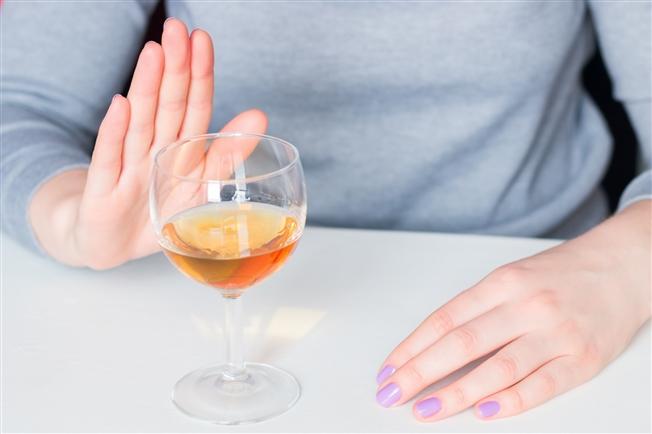Is the Dry January challenge good for you?

Maybe you've seen the memes or posts about it from friends and family on Facebook—"I'm doing Dry January!" This trend has picked up steam over the past several years and become a common New Year's resolution. Except, unlike actual New Year's resolutions, Dry January only requires a 31-day commitment.
Dry January is less of a program than it is an idea; what started as people swearing off alcohol for the first month of the year eventually grew into the movement that is now known as Dry January. There are several reasons why a person might choose to participate. For some, a sober January might be a way of easing into a completely sober lifestyle; for others, abstaining from alcohol is a way to detox after a heavy holiday season or start a healthy year off on the right foot.
In theory, Dry January seems like a healthy way to kick off a new year. But can being sober for one month really make a big difference for your health?
"Any time you're abstaining from alcohol or reducing how much or how frequently you drink, you're doing something good for your body," says Donna Newton, a behavioral health therapist at Mirmont Treatment Center, part of Main Line Health.
How alcohol affects your health
There are varying degrees of how much alcohol can affect your physical and mental health. Excess drinking—defined as eight or more drinks per week for women and 15 or more drinks per week for men—can put you at a much higher risk for chronic disease, cancer, poor digestive health, mental health disorders or difficulty learning or remembering.
But, even if you're not drinking this often, you might still notice that alcohol can make little changes to your skin, sleep quality and more. "There are immediate effects to giving up alcohol, even if you don't drink very often," says Newton. Better quality sleep, clearer skin, lower blood pressure, better concentration and an improved response time (think: braking suddenly in traffic, faster movements in the gym, etc.) are among the most common benefits. Drinking less can also help reduce anxiety.
Research has suggested that alcohol can help improve your health—when consumed responsibly and in moderation—by reducing your risk for heart disease, stroke and diabetes. But these benefits aren't unique to alcohol; exercising and eating a healthy diet can have the same effects and don't come with the same risks that alcohol does.
So…is the Dry January challenge good for you?
In a word, yes. But it's not a cure-all, warns Newton.
"Giving up alcohol for one month won't completely wipe the slate clean, so to speak. If you were drinking frequently in December and are planning to keep up this frequency in February, then one month free of alcohol likely won't significantly reduce the associated health risks."
Instead, Newton suggests transitioning to a more moderate approach. Instead of abstaining from alcohol completely, try to limit yourself to three or four drinks per week. (Remember: that doesn't mean a full wine glass. One drink is classified as 12 ounces of beer, eight ounces of malt liquor, five ounces of wine or 1.5 ounces of spirits like gin, vodka or rum.) Making a long-term commitment to managing your alcohol intake will far outweigh the benefits of one month sans spirits.
Regardless of your reason for trying Dry January, it might be the time you need to recognize the benefits of sobriety. Giving yourself a window of time to try a sober lifestyle may help you realize that you're drinking too much or that the reason you drink is less about alcohol than it is about enjoying the activities that accompany it, like time with friends, vacations or holidays. If you find that this is the case, look for opportunities to hang out without alcohol.
If you're having trouble giving up alcohol for days, weeks or a month, talk to your primary care provider or a therapist. They can help you determine if you have an alcohol dependency or addiction that requires an added level of care, like that provided at Mirmont Treatment Center.
Next steps:
Learn more about Mirmont Treatment Center
Discover the importance of family dinners